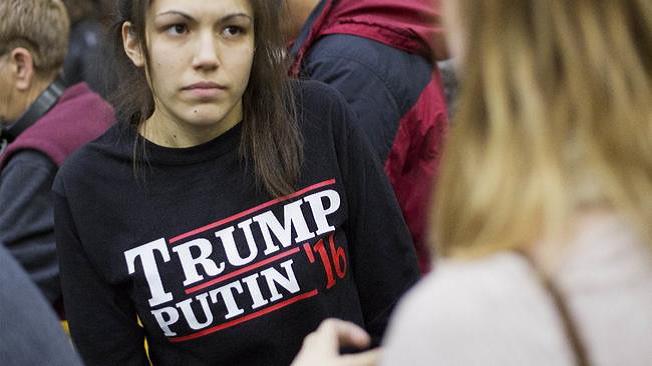
16/11/2016, by CLAS
The End of the World as We Know it? US Foreign Policy under President Trump
Donald Trump’s successful bid for the White House was marked out by a call to put ‘America First.’ In many quarters, Trump’s sound bite was interpreted as harking back to an isolationist mantra that had gained popular currency within the United States in the years leading up to Japan’s attack on Pearl Harbor in December 1941. At that time, charismatic US celebrities, including Charles Lindbergh, the aviator famous for completing the first solo crossing of the Atlantic, called for Washington to reject an internationalist foreign policy and avoid entanglement in the affairs of Europe and Asia. To be sure, in the immediate aftermath of Trump’s unexpected electoral triumph, a groundswell of concern, bordering on blind panic, swept across the foreign ministries of America’s allies. Could Trump’s rhetoric be taken at face value? Was the United States poised to dismantle the global framework of military pacts, political alliances, and economic treaties that had underpinned liberal democratic capitalism since the end of the Second World War? Was Donald really the iconoclast that he claimed to be?
Such basic questions left foreign policy wonks, the vast majority of whom had confidently predicted a Clinton victory, in a state of some disarray. Much expert analytical hot-air had been expended before the second Tuesday in November in predicting the likely foreign policy priorities of a Clinton administration. Much less consideration had been given to the international repercussions of a Trump presidency. Caught flat-footed, many prominent foreign policy commentators stopped only marginally short of predicting, to paraphrase a catchy REM song, the end of the world as we know it. The West was doomed, lamented the Washington Post’s Anne Applebaum. A new era of American insularity and parochialism threatened, opined Jonathan Powell, Tony Blair’s former chief of staff.
So what precisely do we know about Donald J. Trump and his worldview that has occasioned seasoned and normally sober diplomatic observers to throw up their hands in despair? Well, Trump’s credentials for leadership of the free world are certainly unorthodox and more than a little threadbare. As a politically active First Lady, former Senator, and well-travelled Secretary of State, Hilary Clinton was seen in many establishment quarters as especially well qualified to oversee the United States’ global affairs. Hillary appeared to be a safe pair of hands. Hillary was predictable. Hillary was a known quantity. In contrast, Donald, for all his bluster, was a foreign policy enigma, with, at best, a sketchy and dangerously simplistic appreciation of international relations. Trump’s agenda could, it seemed, be written on the back of a postage stamp – pal up to Putin, marginalize the Mexicans, and end cheap security for freeloading allies.
Yet, it is too easy and too reductive to dismiss Trump’s post-election posturing as entirely vacuous and devoid of any coherence. Deeply offensive and divisive to many within the United States and abroad, the president-elect’s interventions in the foreign policy arena do, nonetheless, speak to a trait in American history that, if largely dormant and discredited for much of period since 1945, never went entirely away. Trump’s naked appeal to isolationist self-interest, economic protectionism, and a crude form of unreconstructed xenophobia, clearly resonated with, or at least did little to alienate, many of his fellow Americans. Short on ideological pretension and big on realism, Trump appears comfortable with a transactional approach to diplomacy that is rooted in his commercial background. This is, after all, the man who published a bestselling roadmap for getting on in the world entitled, The Art of the Deal. Approached in this context, criticism of deal making with authoritarian regimes, be they in the Kremlin or elsewhere, undoubtedly appears as naïve and weak from within the confines of Trump Tower. We can then, be reasonably confident that the Trump administration will champion an uber-realist approach when deciding what constitutes the US national interest. There will undoubtedly be little appetite for engaging in costly and protracted military commitments overseas. European and Asian allies will almost certainly be expected to contribute more towards their own security. Beyond this, little is certain and much appears up for grabs. Foreign leaders, one imagines, would be well advised to familiarize themselves with The Art of the Deal.
Paul McGarr, Assistant Professor in US Foreign Policy, Department of American and Canadian Studies
No comments yet, fill out a comment to be the first

Leave a Reply